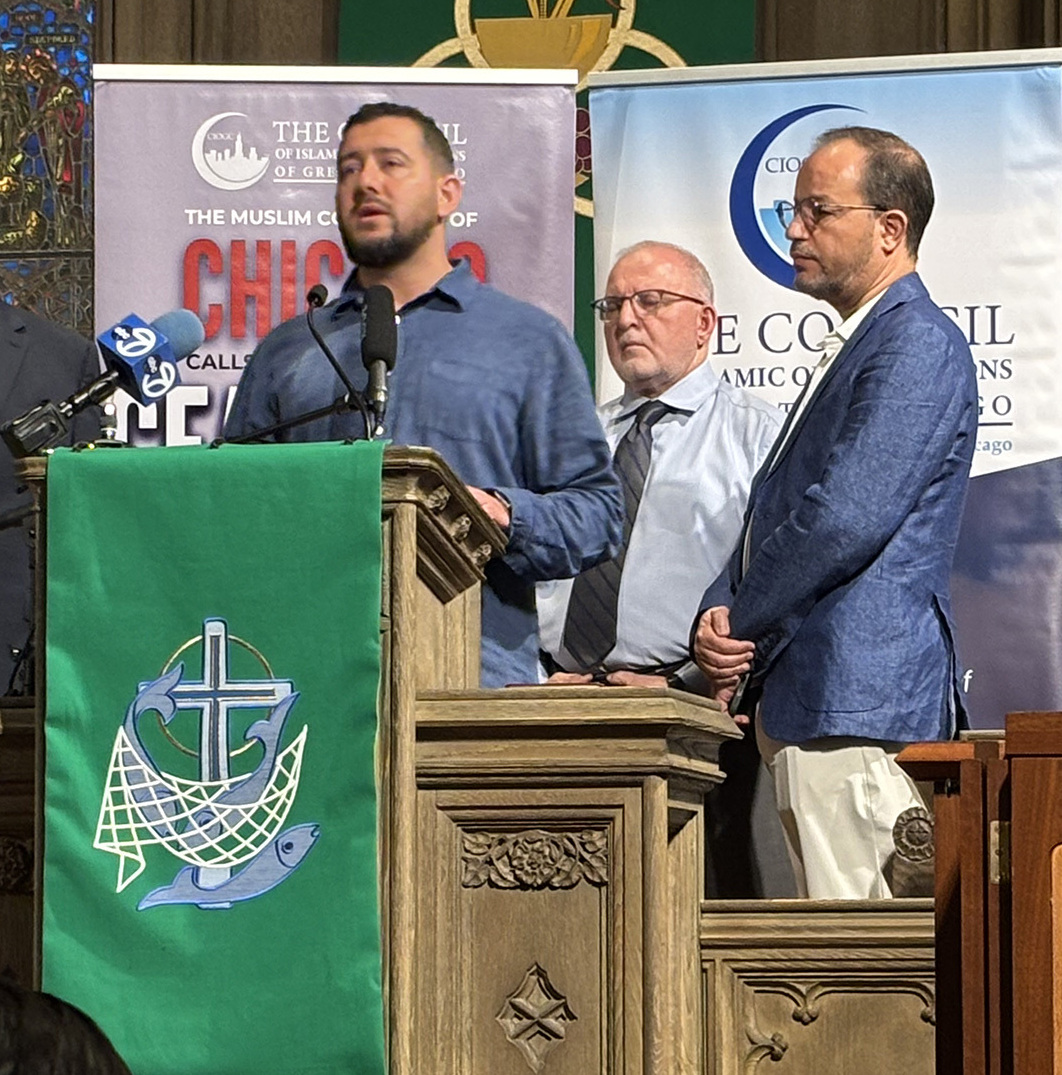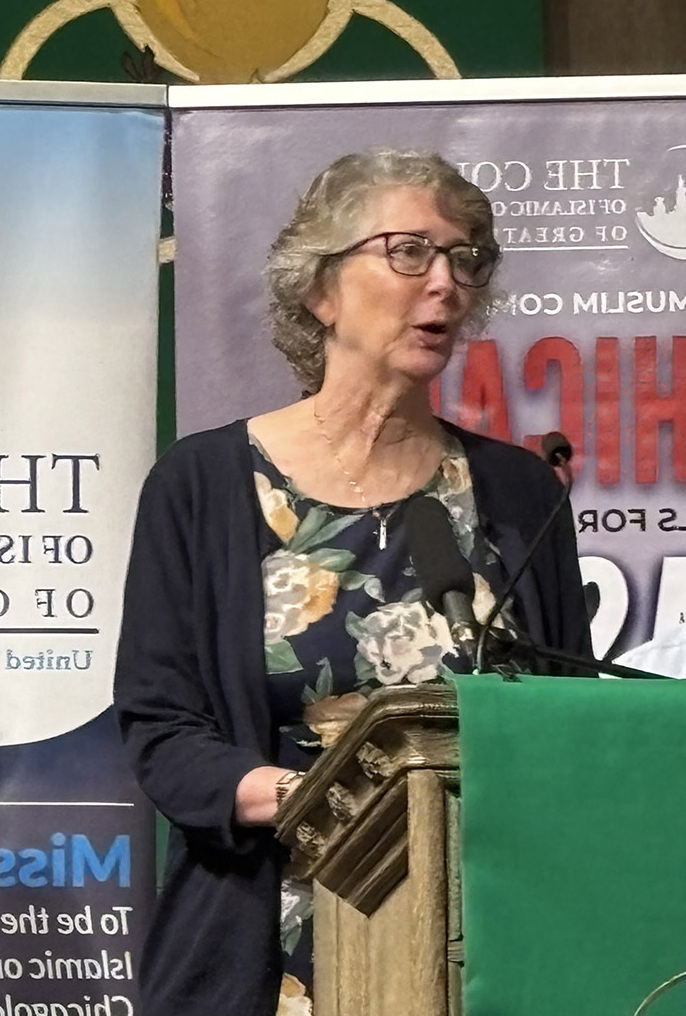Movement in the City, Melrose Park, Suffers Fire
A fire briefly burned in Movement in the City’s (new faith community) Melrose Park campus this morning. Firefighters, who rushed from a nearby station, quickly extinguished the…
Alaa Samman, who grew up in Gaza but now lives in the U.S., calls his father in Gaza regularly to see how he and the family are doing.
On a recent call, “I could tell he was holding back tears,” Samman said. “He told me he had been walking through the rubble of the town, looking for food for the household.” About 20 family members, some who have lost their homes to the war, now live in one apartment.
“We haven’t eaten in two days,” his father said. “What am I to tell my grandchildren?”

Dr. Zaher Sahloud (right) and Dr. Abdulghany Hamadeh (center) listen to Alaa Samman as he tells of his family's desperate search for food in Gaza.
Samman told his story during a press conference hosted on July 30 by the Council of Islamic Organizations in Chicago and the Northern Illinois–Wisconsin Episcopal Area of The United Methodist Church. Speakers and reporters gathered at First United Methodist Church at the Chicago Temple.
This family’s experience—which is not unique—brings into sharp focus the deprivation caused by the war between Israel and Hamas.
A small amount of food and medicine is entering Gaza, but from only four sites. Dr. Zaher Sahloul, president of MedGlobal (a medical nonprofit that serves people in poverty and crisis), said the region could use 400 sites.
“The worst-case scenario is happening now,” Dr. Sahloul said.
About 70,000 children in Gaza suffer from malnutrition, and most will die, Sahloul said. Some 20,000 were admitted to hospitals last month for severe malnutrition—which constitutes a medical emergency. Malnourished children have compromised immune systems and are vulnerable to dying of communicable diseases and infections.
Even those children who survive malnutrition will have medical conditions for the rest of their lives, he said.
Most of the population has been forced to the south, a very small area, because entire towns have been bombed out of existence. There is almost no clean water, food, medicine, or health care, Sahloul explained.
The few opportunities when people can visit a site for what they are told will be a food distribution are sometimes a trap—while standing in line, people have been shot and killed by Israel Defense Forces.
People know it is risky to get into these queues—but they are desperate to feed their families, so they take their chances.
And when they do receive a small amount of flour or grain, it is almost worthless without water and firewood for cooking—two things that also can be impossible to find.

Rev. Jane Eesley finds current relevance in Jesus's teaching that "whatever you do to the least of these, you do to me."
“This is a 17-year humanitarian crisis that Gaza has been suffering,” said Dr. Abdulghany Hamadeh, a professor of medicine at the University of Illinois Chicago and the president of CIOGC’s board. “It’s worse now than it was in 1967 [the time of the Six-Day War].”
Rev. Jane Eesley, senior pastor of First UMC, recently returned from a two-year assignment with the Methodist Liaison Office in Jerusalem, a ministry supported by two Methodist denominations. She lived in the West Bank and spent time with Muslims and Christians who lived in Gaza.
“When there is a conflict between ideology and people, the faithful must put people first,” she said.
Sheikh Hassan Aly, director of community engagement and global partnerships at MedGlobal, agreed.
“The children of Gaza are not asking for politics, but for bread and to live another day,” he said. “This is a crisis of conscience. The pain is not up for debate.”
The Northern Illinois–Wisconsin Episcopal Area of The United Methodist Church and the Council of Islamic Organizations of Greater Chicago prepared a joint statement. Together, they call on the nation of Israel and U.S. elected officials to meet the following demands:
Further, the organizations ask faith groups to support these demands in the following ways:
A fire briefly burned in Movement in the City’s (new faith community) Melrose Park campus this morning. Firefighters, who rushed from a nearby station, quickly extinguished the…
Christ United Methodist Church in Rockford suffered a fire on Monday night, Feb. 23, that started in its organ. Thanks to the fast response of the few in the building at the time, d…
For nearly a century, housing has been part of Humboldt Park United Methodist Church’s ministry. Now, through a partnership with LUCHA, the church’s 98-year-old building is being tran…
Reflecting on scripture and Building Beloved Community, Bishop Dan Schwerin contrasts God’s love-shaped authority with the fear-driven authoritarianism se…